Pipedrive
From version 3.0.2150 the Pipedrive connector is available to download from the Simego GitHub page. For versions released before this and after 3.0.1216 it is available in the pre-installed connector list.
We have added a
Install the Connector
To install the Pipedrive connector navigate to the release page in GitHub for the connector and then right click onto the Simego.DataSync.Providers.Oracle.zip file and copy the link.
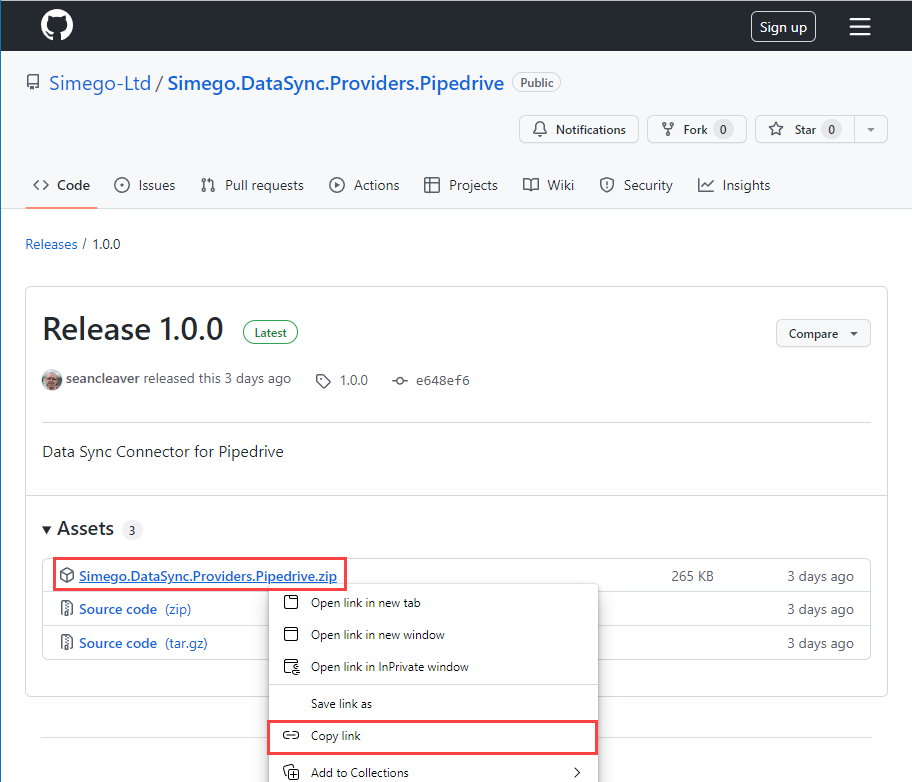
Now open Data Sync and go to File > Install Data Connector. Then paste the link into the Data Connector URL field and click OK to install the connector.
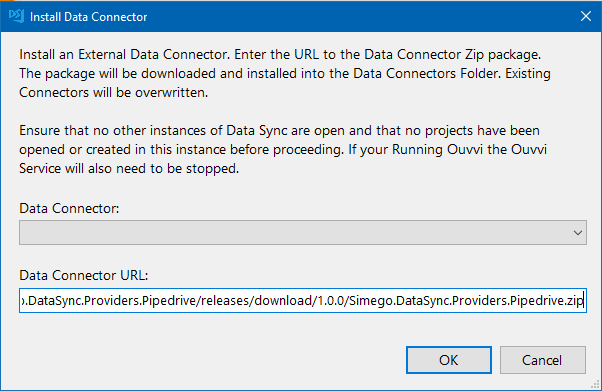
If the installation was successful you should get a confirmation popup and you now need to close all instances of Data Sync and then re-start the program.
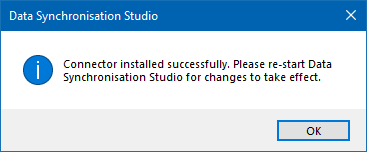
If you get an error saying it could not install the connector because it is "Unable to access folder", then this is because the folder is locked by Ouvvi. Please stop your Ouvvi services and try again.
You can now access your connector from the connection window.
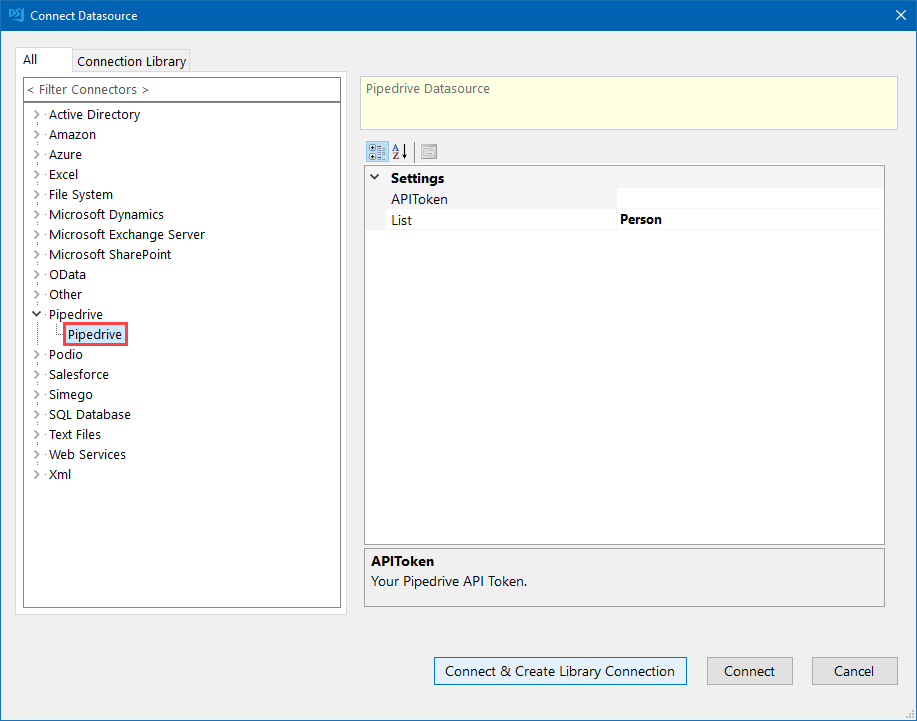
Using the Connector
Once you have the connector installed you need to provide the API token and the list you want to connect to.
API Token
This is your Pipedrive API token.
You can find your API token by going to Settings > Personal > Other > API
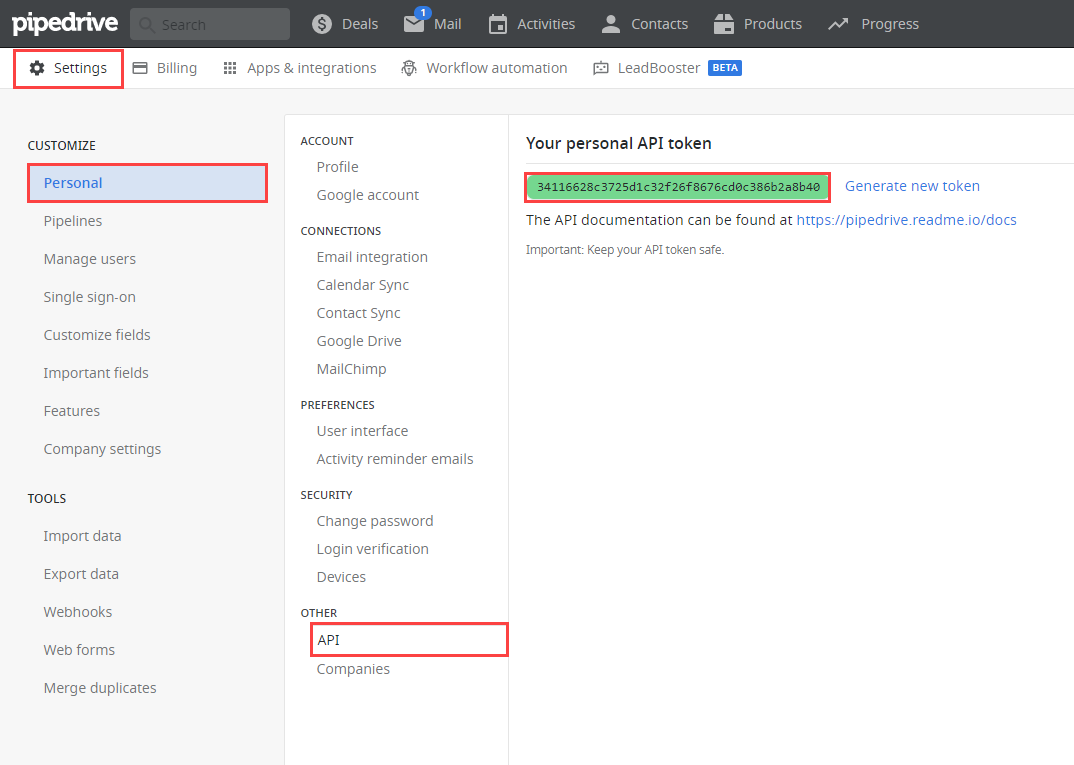
If you do not see API listed under the other category then you will need to follow the Pipedrive tutorial on enabling API here.
List
This is the list within Pipedrive you wish to connect to.
You can connect to any of the following:
| List | Description |
|---|---|
| Activity | Activities are appointments/tasks/events on a calendar that can be associated with a Deal, a Person and an Organization. Activities can be of different type (such as call, meeting, lunch or a custom type) and can be assigned to a particular User. |
| Deal | Deals represent ongoing, lost or won sales to an Organization or to a Person. Each deal has a monetary value and must be placed in a Stage. Deals can be owned by a User, and followed by one or many Users. Each Deal consists of standard data fields but can also contain a number of custom fields. The custom fields can be recognized by long hashes as keys. These hashes can be mapped against DealField.key. The corresponding label for each such custom field can be obtained from DealField.name. |
| Note | Notes are pieces of textual (HTML-formatted) information that can be attached to Deals, Persons and Organizations. Notes are usually displayed in the UI in chronological order – newest first – and in context with other updates regarding the item they are attached to. The maximum note size is approximately 3,000,000 characters (or 3MB per note) |
| Organization | Organizations are companies and other kinds of organizations you are making Deals with. Persons can be associated with organizations so that each organization can contain one or more Persons |
| Person | Persons are your contacts, the customers you are doing Deals with. Each Person can belong to an Organization. Persons should not be confused with Users. |
| Pipeline | Pipelines are essentially ordered collections of Stages. |
| Product | Products are the goods or services you are dealing with. Each product can have N different price points - first, each Product can have a price in N different currencies, and secondly, each Product can have N variations of itself, each having N prices different currencies. Note that only one price per variation per currency is supported. Products can be instantiated to Deals. In the context of instatiation, a custom price, quantity, duration and discount can be applied. |
| Stage | Stage is a logical component of a Pipeline, and essentially a bucket that can hold a number of Deals. In the context of the Pipeline a stage belongs to, it has an order number which defines the order of stages in that Pipeline. |
| User | Users are people with access to your Pipedrive account. A user may belong to one or many Pipedrive accounts, so deleting a user from one Pipedrive account will not remove the user from the data store if he/she is connected to multiple accounts. Users should not be confused with Persons. |
